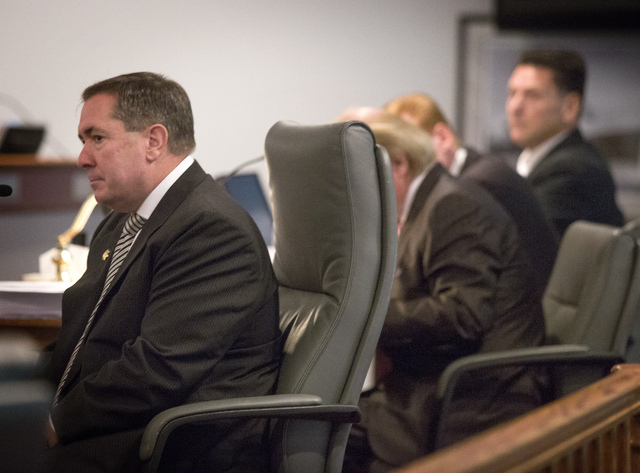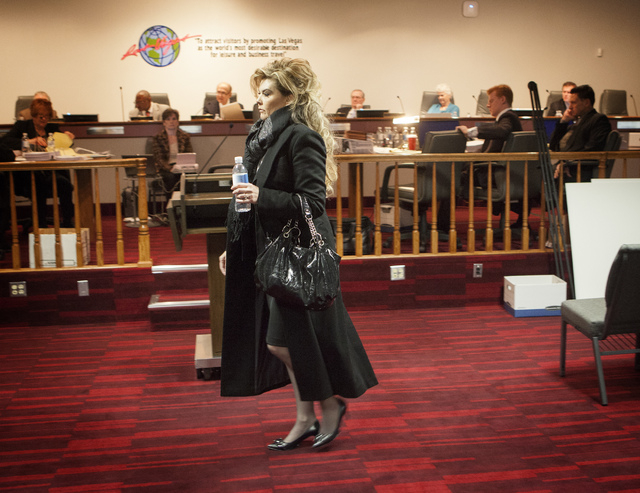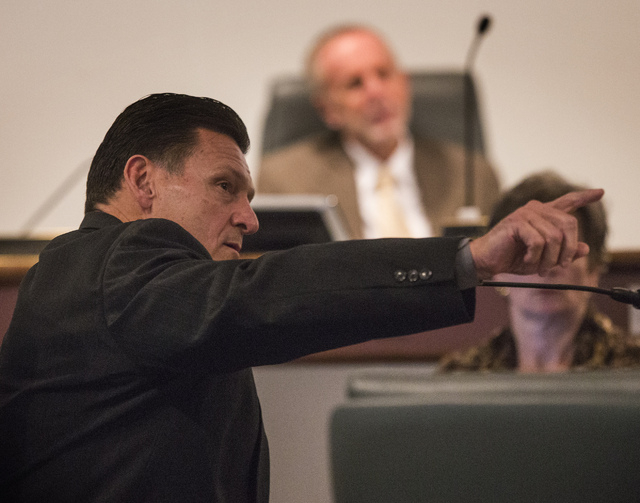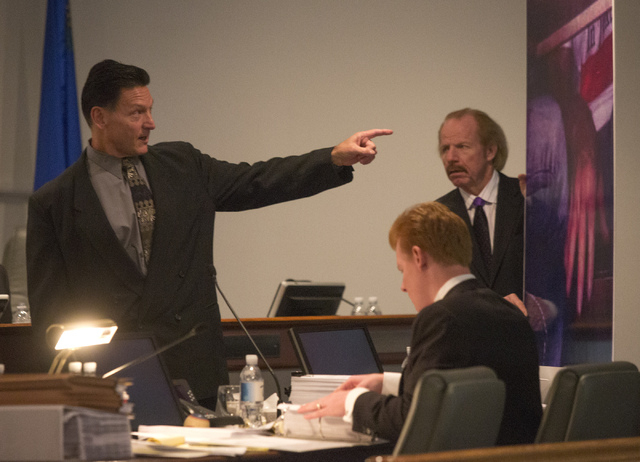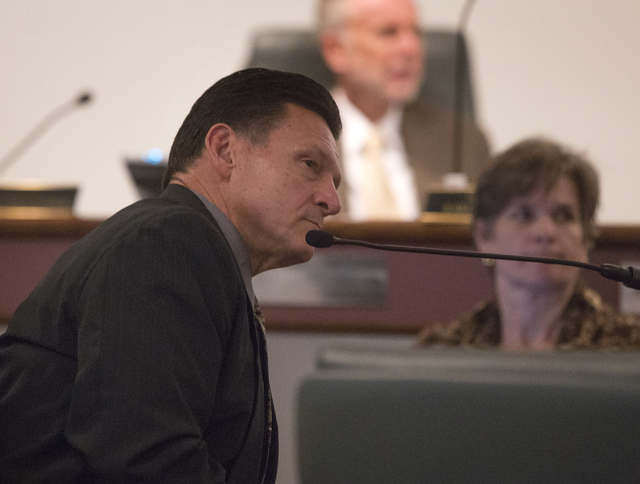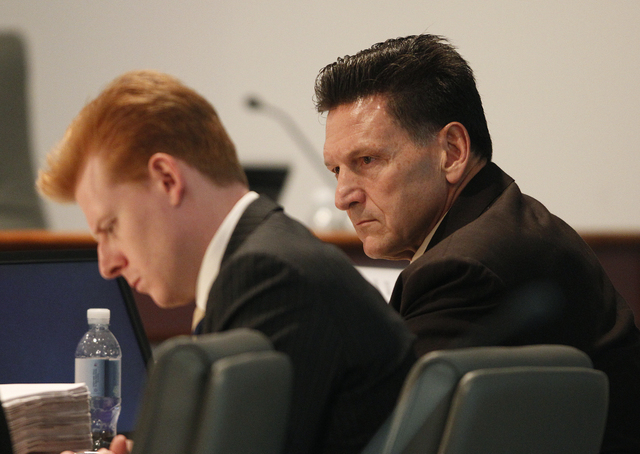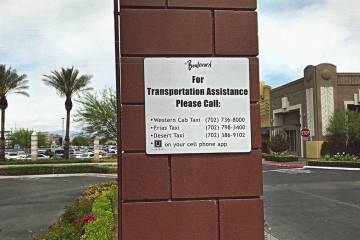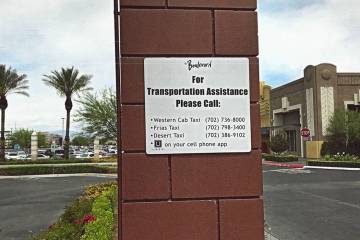Crooked judge heads straight to public retirement pension
When Steven Jones is sitting in prison (and I’m pretty sure the despicable abuse of his judicial powers will persuade a federal judge he’s unworthy of probation), don’t feel too sorry for him.
He probably won’t have money woes when he gets out. While he’s pumping iron behind bars, he can rest assured he might be able to get up to 75 percent of his $200,000 a year salary as a judicial pension, at least at some point.
That’s the way the system works. A pension is an earned benefit, so you can be a teacher convicted of molesting children or a police officer convicted of drug charges or a corrupt judge exploiting people, but you still get your pension.
They can’t take that away from you.
“We don’t have a provision in the law allowing forfeiture,” said Tina Leiss, executive officer of Nevada’s Public Employees Retirement System. In the 12 years she has been with the system, no Nevada lawmaker has tried to change that, but she said one reason is that there are issues with the Internal Revenue Service that would complicate taking away a pension someone earned during their working days.
The PERS system is so complex that estimating how much Jones will get is nothing more than guesswork, and Leiss is not allowed to tell. There are many variables. He could be in PERS, or he could have gone with the Judicial Retirement System. He could pay a penalty of about 4 percent a year and take it early because he’s 56. But then once he takes his pension, he’s guaranteed a boost of more than 4 percent each year.
But it’s possible he could get up to $150,000 a year to live on, plus those annual increases, so he won’t be living in poverty when he get out.
For years, angry callers asked me whether public employees continue to receive their salaries when they are charged with felonies and not working. Payment for no work doesn’t sit well with taxpayers. But they get even angrier when they learn that convicted criminals who are public employees retain their lifetime pensions despite their convictions.
Pay attention to these numbers: Jones publicly admitted last week he participated in a scheme that defrauded 22 people out of $1.2 million over a 10-year period.
Jones used his charms to provide credibility to his ex-brother-in-law Thomas Cecrle, the brains of the Big Con. As the plea bargain he signed said, Jones’ role was to use his position as judge to meet with at least one victim both in his chambers and in the parking lot of the courthouse.
Jones vouched for that Cecrle needed a short-term loan to buy water rights worth hundreds of millions. And the lucky victims, er, investors, would make loads of money if they would only help Cecrle.
When Cecrle wrote bad checks to repay one victim, the judge used his powers to have Cecrle released on his own recognizance in March 2006. He told at least one victim that Cecrle’s project was lucrative and he would help him complete the project in any way he could.
In 2007, Jones accepted cash from a victim in the Family Court parking lot wearing his robes. Cecrle couldn’t do it because he was in custody. Jones said he was traveling. Not so.
Change of plea hearings lack the drama of sentencing. Jones gave short answers of “Yes” and “I do” as he waived his rights to a trial. There were a handful of supporters present in the courtroom. His former girlfriend Lisa Willardson might have been there if she hadn’t died of a prescription drug overdose Dec. 26. She always said Jones was a fine man, who took care of his ailing mother, who was innocent of wrongdoing. Willardson’s death occurred after the Nevada Judicial Commission found he violated the code of ethics by allowing her to appear before him when they were dating.
U.S. District Judge Jennifer Dorsey abandoned the courtesy of calling him “Judge Jones.” Even though he hadn’t formally resigned the job he had held since his election in 1992, she addressed him as “Mister Jones.” He resigned his position later than day. He had been on leave with pay since he was indicted in November 2012, except for three months, a paltry penalty ordered by the Nevada Judicial Discipline Commission for unethical behavior regarding Willardson.
Based on his betrayal of his judicial oaths, Jones didn’t deserve any courtesy title. When Dorsey sentences him Jan. 26, Dorsey will show how seriously she views the ex-Family Court judge’s actions.
Prosecutors agreed not to argue for more than 27 months in prison, the low end of sentencing guidelines, one of the incentives to get him to plead and avoid the cost of a trial. Otherwise, he faced up to 20 years in prison if convicted by a jury. The judge will decide the amount of restitution he must pay victims.
When Dorsey sentences Jones on one count of conspiring to commit wire fraud, she won’t be able to take into account past allegations that Jones, a large man, abused a girlfriend. Those charges were dismissed in 2006 when the girlfriend recanted, saying she should be blamed for her injuries because she was an alcoholic.
Reading the admissions in Jones’ plea bargain should be enough to revolt Dorsey. They certainly revolted me.
Jane Ann Morrison’s column appears Thursday. Email her at Jane@reviewjournal.com




